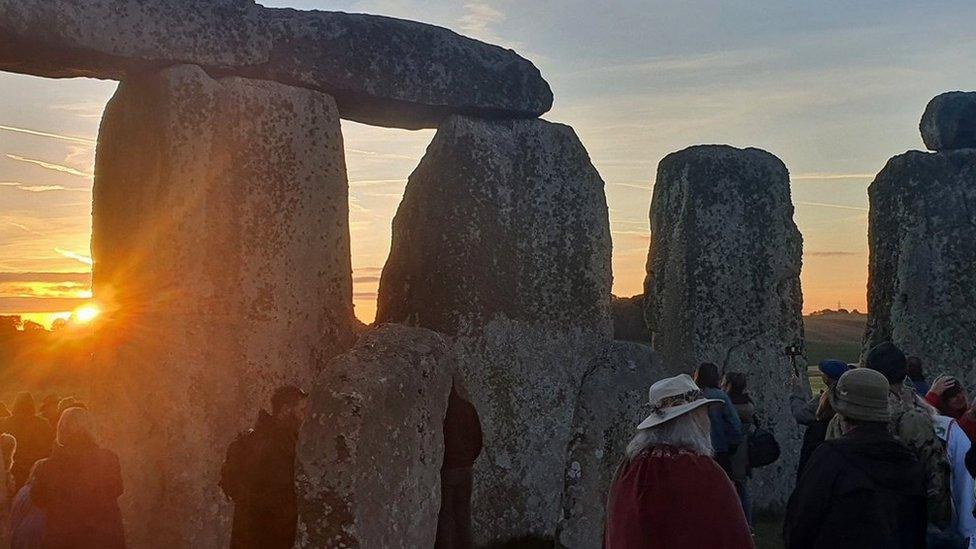Stonehenge winter solstice crowd the biggest of pandemic
- Published
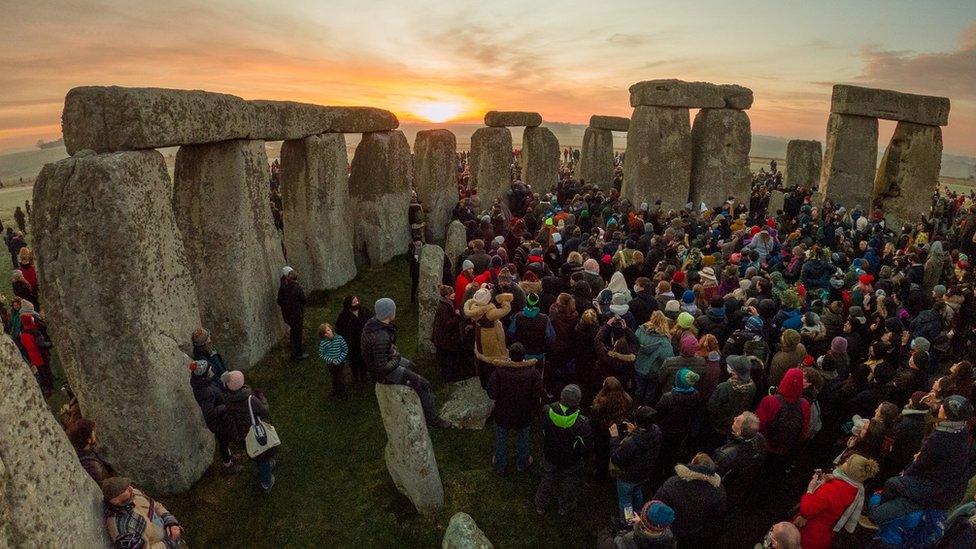
Hundreds of people stood among the stones as dawn arrived
Crowds have come together for the biggest gathering at Stonehenge since the pandemic began.
Druids and pagans were joined by hundreds of others to mark the end of the longest night.
English Heritage allowed access to the site but also live streamed the sunrise for those who wanted to watch at home.
Historians believe the turning of the year was celebrated by the people who erected the stones.
It was the first time since lockdown began in March 2020 that open access was allowed at the World Heritage Site on Salisbury Plain, with about 1,000 people attending.
The curator of Stonehenge, Heather Sebire, told BBC Radio Wiltshire: "The whole monument is orientated to the midwinter sunset and the midsummer sunrise. Today is marking the turning of the year.
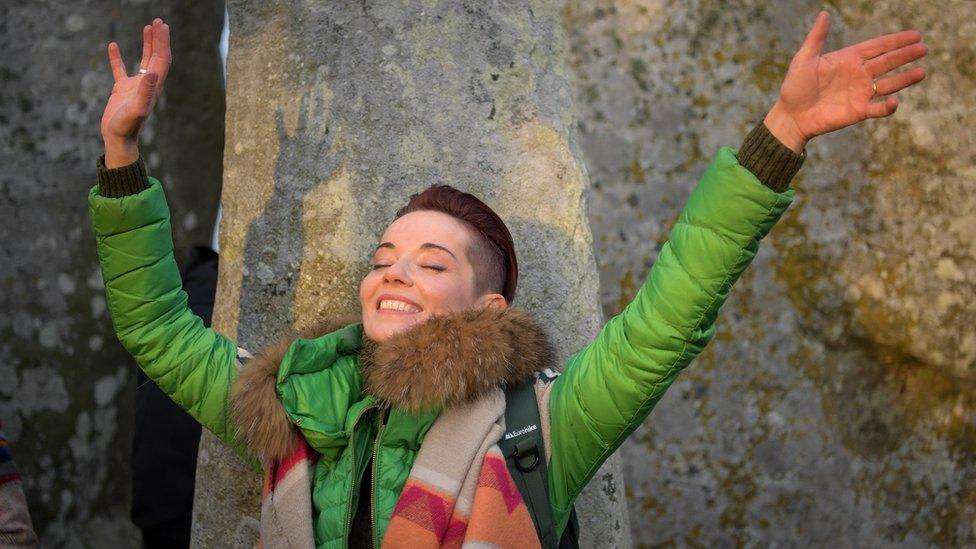
The celebrations marked the point where the hours of sunshine will increase each day
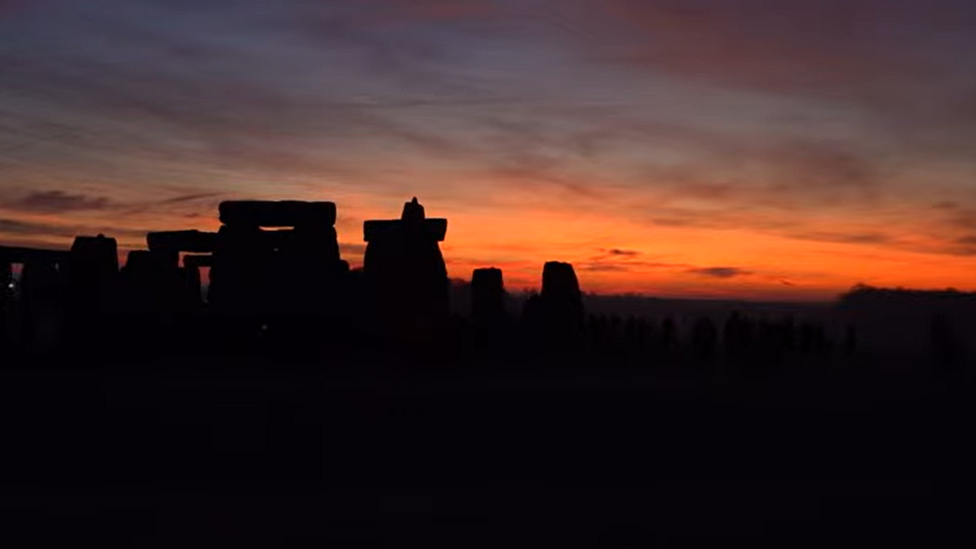
English Heritage live streamed the sunrise so people worried about Covid-19 could watch from home
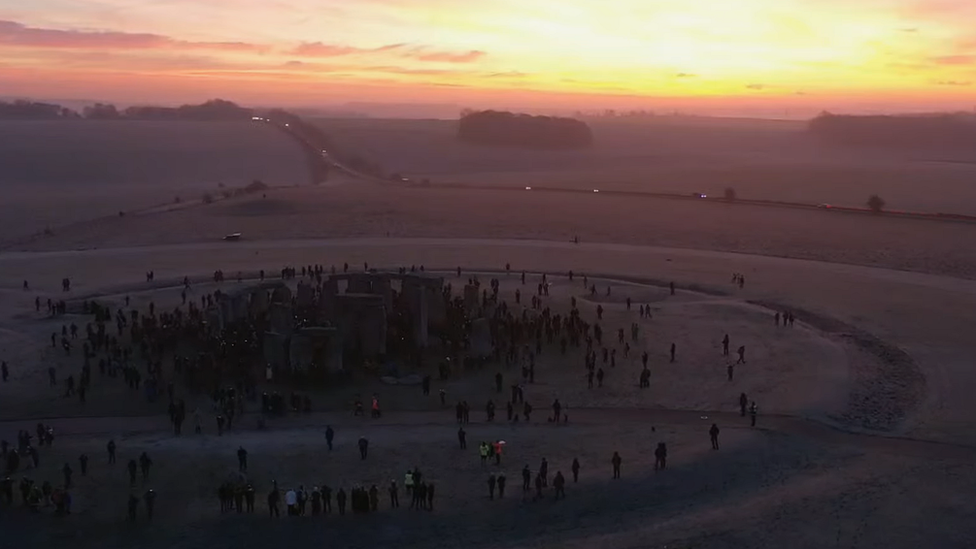
A large crowd gathered at the ancient stones as dawn approached
"The people who built Stonehenge were agriculturalists, they were growing their own food, they probably knew that the days would get longer, things would get better and with any luck their crops would grow again."
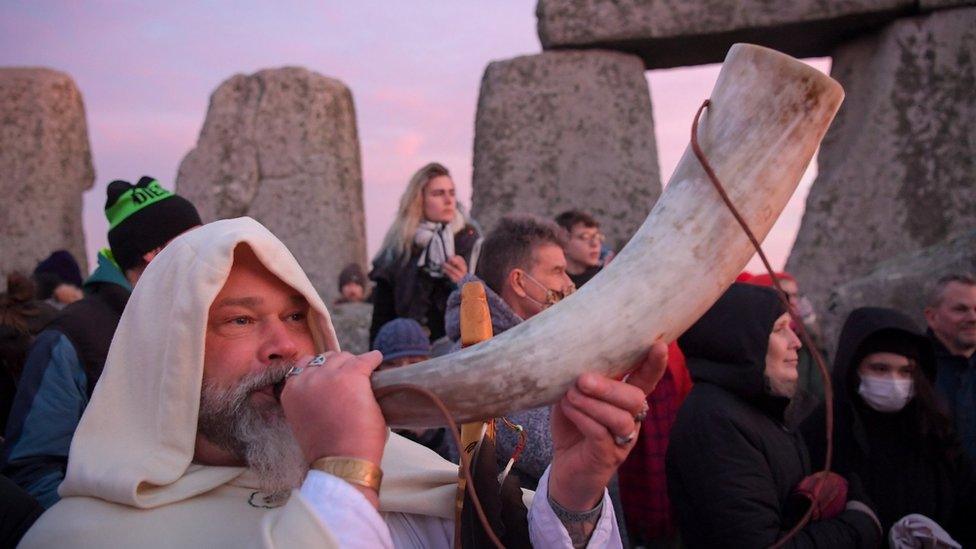
Druids and pagans gathered to mark the turn of the year
She said while people had been invited to watch online, the gathering was the biggest ceremony since lockdown began in the spring of 2020.
"It is an open-air event and we are very much following government guidelines," she added.
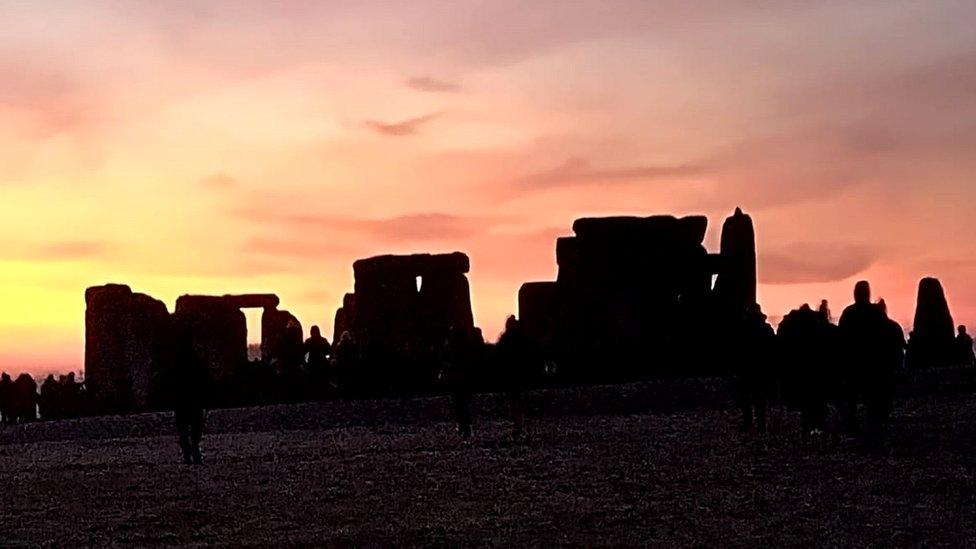
The sunrise came at just after 08:00 GMT
English Heritage asked people at the ancient site take a lateral flow test and wear face masks.
It also provided regular hand sanitiser stations and marked out enough space for people to socially distance.
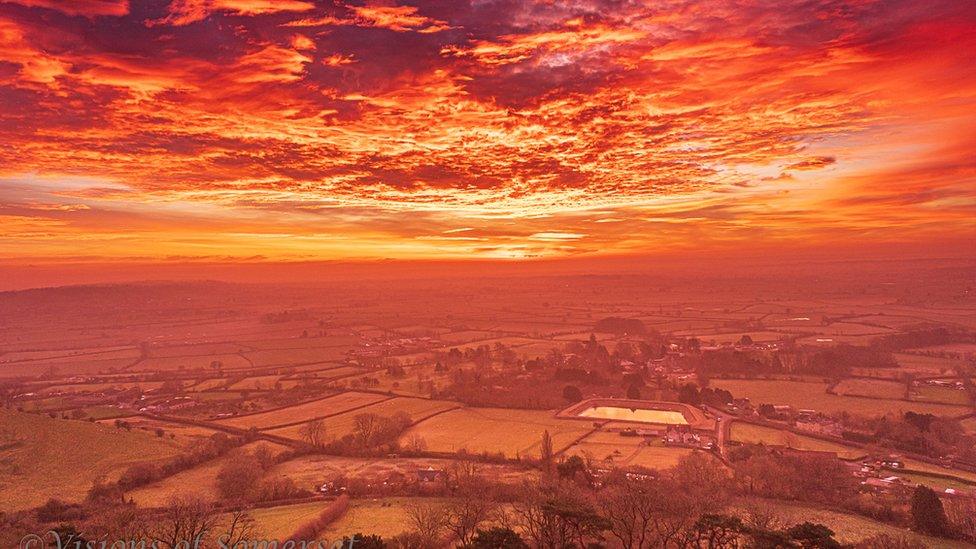
The spectacular sunrise was also captured from Glastonbury Tor in Somerset
Kate Blackburn, Wiltshire Director of Public Health, said: "We know how special the winter solstice is for some people, and we want all attendees to enjoy the event safely."

'Facing east in unison'
From Karen Gardner, BBC Radio Wiltshire
Five thousand years, approximately, after the stones first appeared on Salisbury Plain, a spectacular sunrise greeted the hundreds of people gathered at Stonehenge.
They had braved a freezing morning to be here, and as the first rays of the pale, yellow winter sun began to move across the frozen ground, the druids and pagans were in the middle of what are to them very important, sacred ceremonies.
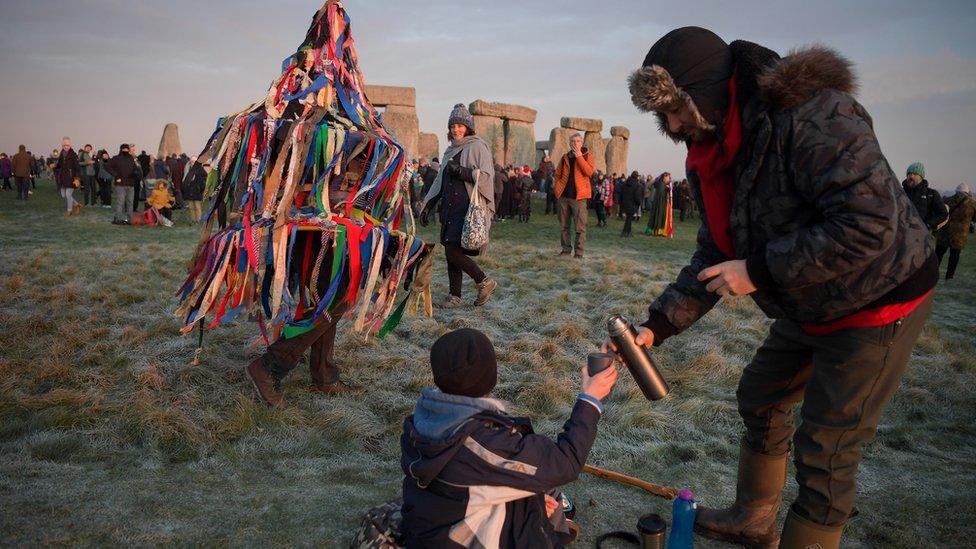
It was the first time people had been allowed to walk among the stones since the pandemic began
As the drumming echoed around the site, everyone, tourists, locals and the religious, turned their faces to the east in unison to greet the sunrise.
People marked the moment in different ways - some quiet, some jubilant - but you could sense a real joy in the air.

Celebrating the return of longer days
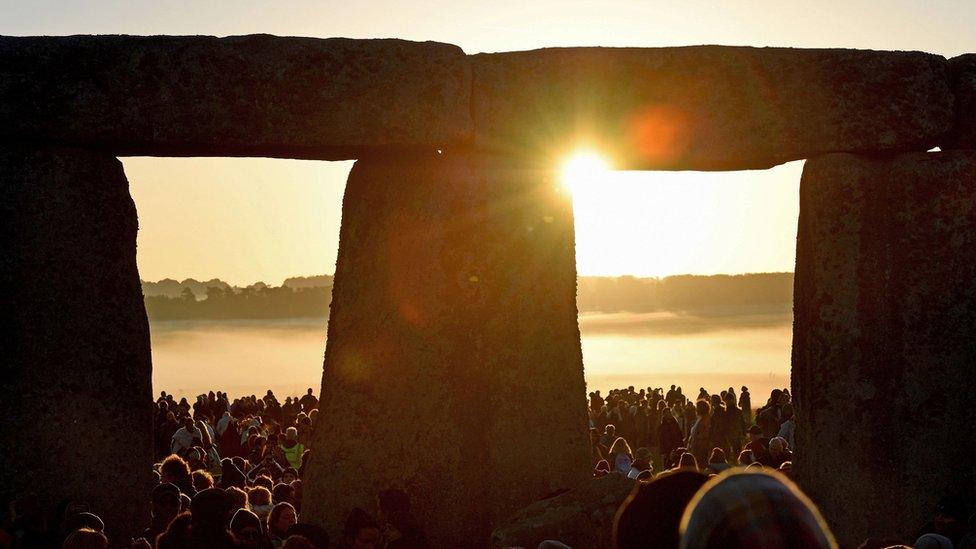
Stonehenge has huge significance for druids and pagans in midsummer and midwinter
The actual moment of the solstice was at 15:59 GMT on Tuesday 21 December. The reason the celebrations at Stonehenge are on Wednesday is because it is the dawn of the day when the days start to lengthen again.
Winter Solstice is not the shortest day of the year - it is the moment at which the sun is at its furthest from the Northern Hemisphere, due to the tilt of the earth within its orbit around the sun.
The shortest day of the year is actually today and is officially the first day of astronomical winter - which is different from meteorological winter which starts on 1 December.

Follow BBC West on Facebook, external, Twitter, external and Instagram, external. Send your story ideas to: bristol@bbc.co.uk
Related topics
- Published21 December 2021
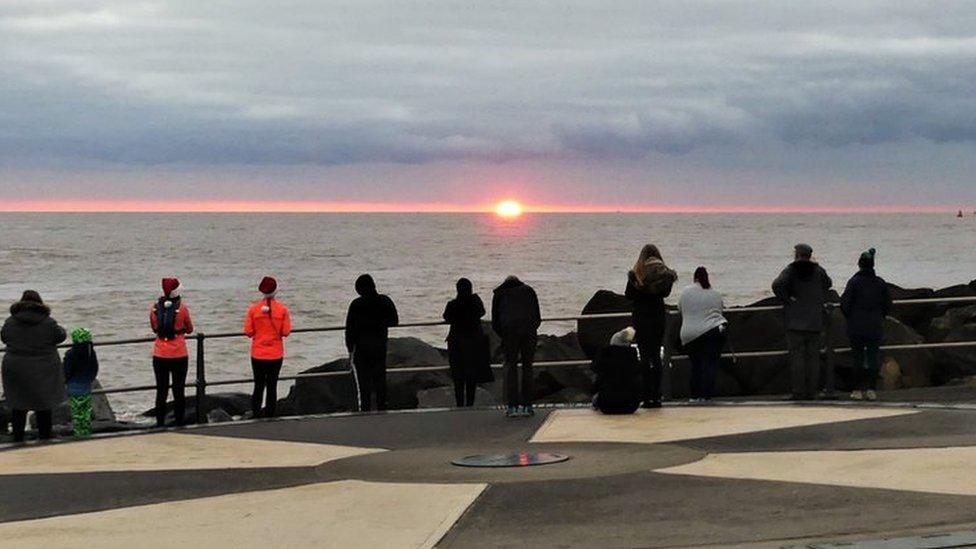
- Published7 December 2021
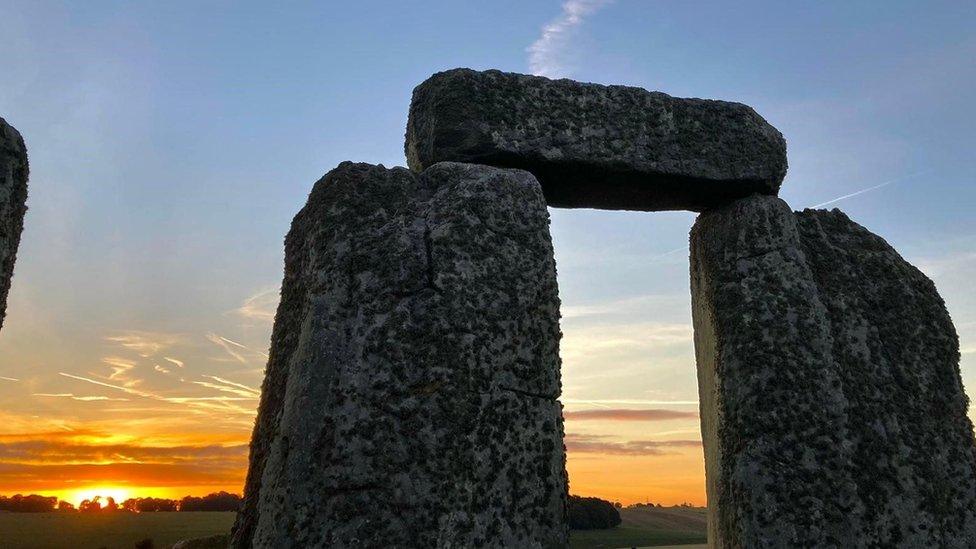
- Published1 December 2021
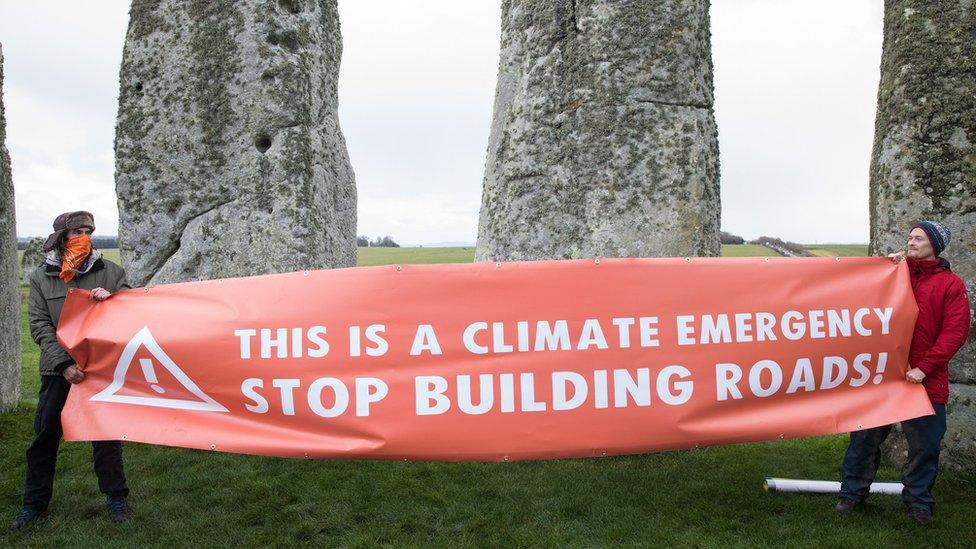
- Published23 September 2021
